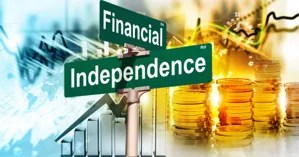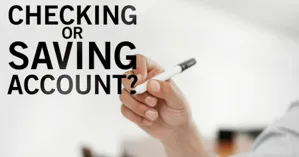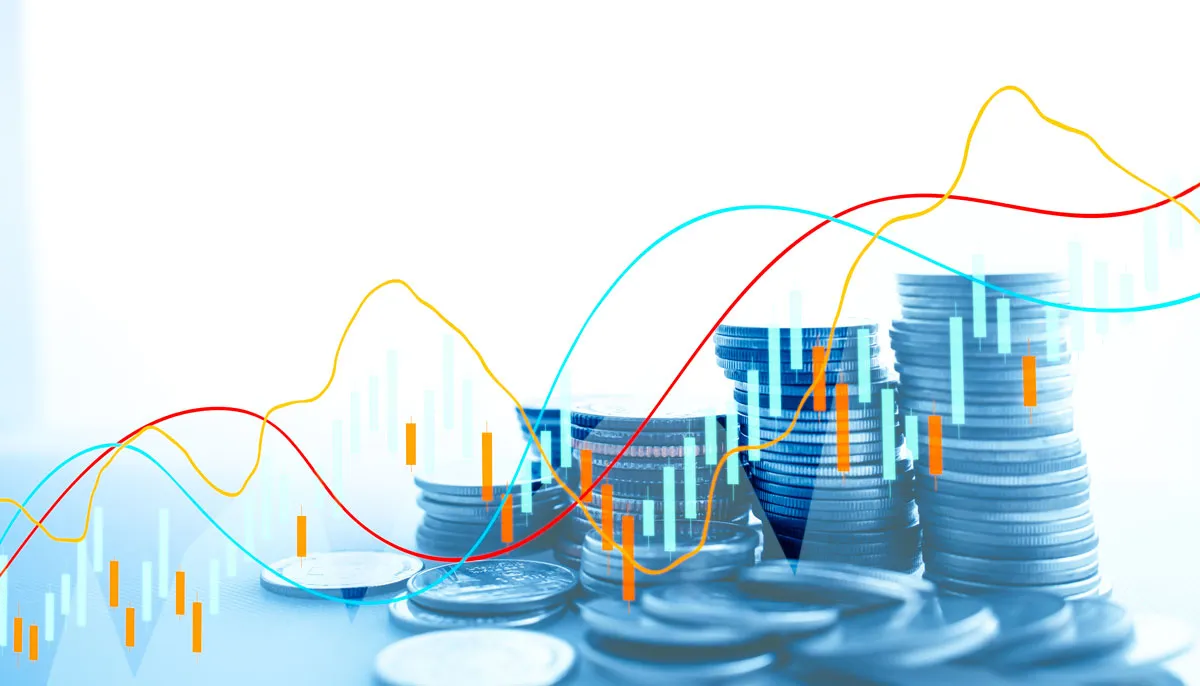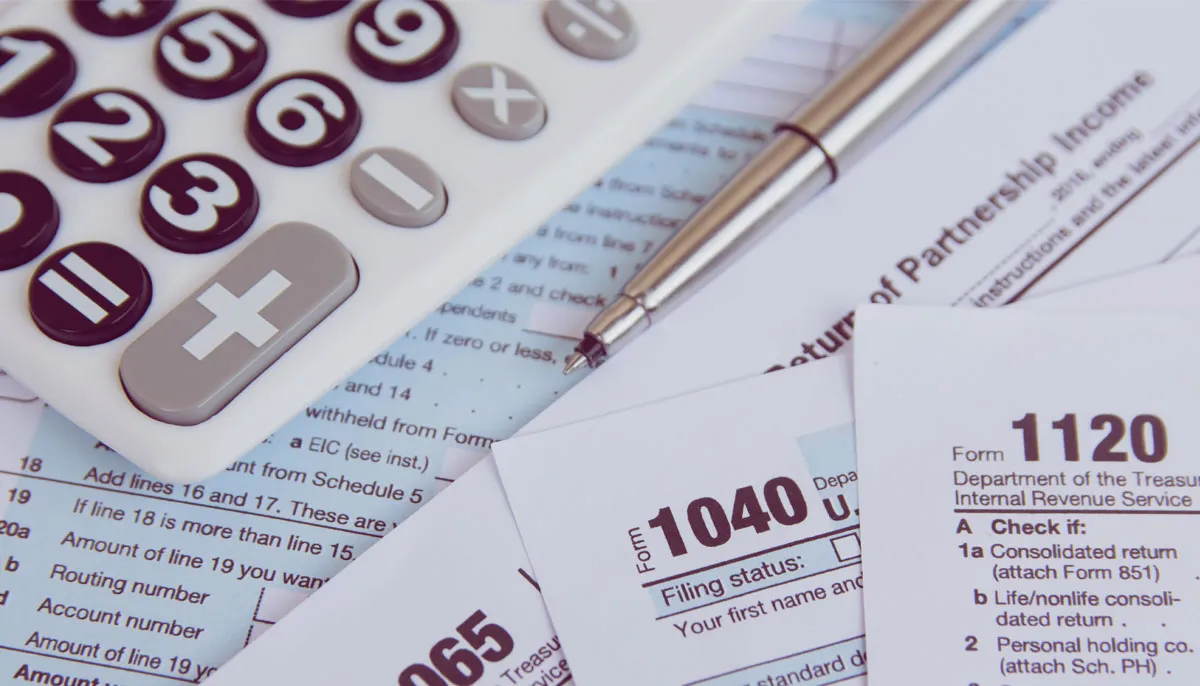
Do you have massive financial goals this year? Are you ready to hit the ground running and smash those goals? Is now the time to pay off your debts or build up your savings? If you're bringing in a little extra cash this year and aren't quite sure where to start, let's figure it out.
Unfortunately, this answer isn't clear-cut. If you have a question in your mind like should I save or pay off debt, this article may help you out. You need to sit down and figure out which is more important, and which you can achieve faster.
Debt consolidation
Choosing the debt eradication method leaves you with several options. There are several ways you can complete the debt repayment and be able to start saving soon.
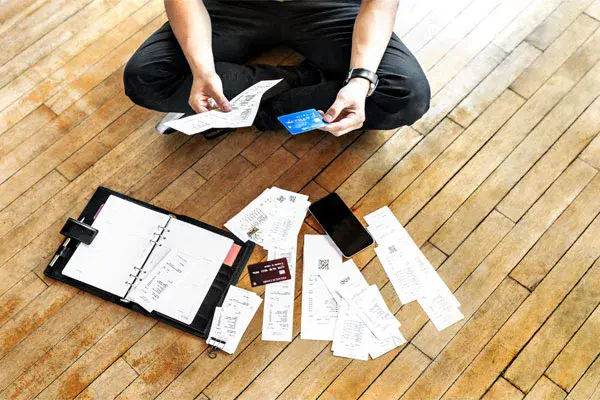
Image Source: Adobe Stock
While taking out another loan may feel counter-intuitive, not paying interest across several loans will save you in the future. Personal loans tend to have lower interest rates than credit cards. You may also want to check with your credit card, as some offer a balance transfer at a lower or even 0% APR for a period of time. Don't be afraid to shop around and see what your options are.
In the decision between bolstering financial security or handling unexpected expense, it's advisable to tackle the highest-interest debt initially to alleviate the burden of accruing interest, paving the way for a more secure financial foundation.
The avalanche method
If taking out another loan isn't an option, it's time to get aggressive. The avalanche is when you take your highest-interest-rate loan and throw everything at it. This approach will save you more money over time as you won't be paying more interest when this is paid down faster. It may take longer to see these larger loans go away, but when you pay more, more of your money goes to the principal instead of being wasted on interest.
The snowball method
The snowball method is the exact opposite of the avalanche method. Here you'll pick your smallest debts and wipe them away. Choose this method if you are motivated by progress. Seeing little debts wiped away will make it easier to stay on the right track.
As you knock out smaller loans, you'll start having more money at the end of the month and can use it to attack the next largest debt. The only downside to this is that your larger loans will be sitting there accumulating interest.
The downsides
The downside to paying down your debts first is if an emergency arises, you may not have an emergency stash to cover it. This can lead you to have to charge your credit card again and be back to square one. Not having an emergency fund leaves you on the hook for life's curveballs, and just a little setback can put you back on the path to debt.
Don't use up all of your money to get out from under your pile of debt. Even saving as little as $20 in cash from each paycheck can get you out of a bad situation. Knowing that you have a little cash in your pocket can help you not swipe your credit card when an unexpected expenses comes up. Knowing that you only have $20 in your pocket can make you more conscious of where your money goes.
Considering the options of saving or paying off debt, prioritize addressing credit card debt first to alleviate the burden of high-interest debt payments before diverting funds to save money.
It’s time to start saving
Whether you've knocked out all of your lingering debt, or you want to build up an emergency savings, here are some easy saving tips for you.
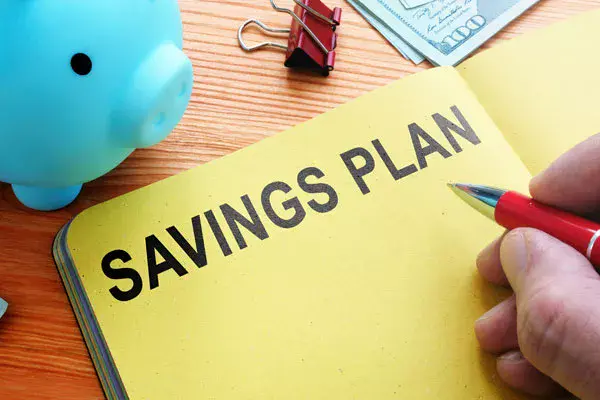
Image Source: Adobe Stock
Utilize your options
If you have an employer who will match your 401K contributions, do that! While you're at it, maximize your contributions to whatever percentage they will match. It is nearly impossible to make up retirement savings for all the years you put it off. Having someone match what you're putting in is an opportunity you can't pass up.
Another upside to contributing to your 401k is that is it pre-taxed money, meaning you don't have to pay taxes on it until you use it. It will come straight out of your paycheck and into your retirement account. Since you don't have to manually move the money, you won't even notice it's missing every paycheck. It's the whole out-of-sight, out-of-mind trick. You will thank yourself when you get to retirement age.
Get a high-yield savings account
When you're able to start making some contributions to a savings account, be smart about it. Choose a high-interest savings account where your money earns interest while you're saving it up. Some banks offer sign-up bonuses or better APRs than others. Shop around to see what is the right fit for you. Don't get hit by maintenance fees or account minimums.
Spreading your money out for different accounts is a great way to maximize all the benefits out there. It's like diversifying your investment portfolio. It's okay to move your money when you find a better offer or open multiple accounts allocated to different goals.
Prioritize highest-interest debt to minimize financial strain from minimum payments.
Squirrel away your money
Building up a little emergency fund that you have easy access to is a must. This fund can be especially helpful when anything unexpected pops up. It can be a simple savings account that is attached to your debit card or even a pile of cash in a safe. Maybe you already opened a high-interest savings account without a minimum, and you can take money from there in a pinch.
How much you should save depends on your circumstances. If you are a relatively healthy person who already has the accounts above, and not a lot of debt, $500-$1000 could be enough. For those with health issues or an unstable career, saving up for a few months of expenses is a better option. More is always more when it comes to saving, but a larger amount of cash might be better off in a savings account or a retirement plan.
Whether you choose to pay down your debts or build your savings first, the fact that you are thinking about it is half the battle. Making your personal finance health a priority will ease your stress and make your life more enjoyable. Learning smart money habits will only set you up to have a better life all around.
Should you save or pay down your current debt?
How much do you owe on your bills and how much are the interest rates? If you have a high-interest loan, you should probably start putting most of your money toward that debt. The interest will continue to grow, making that debt nearly impossible to get ahead of.
For people with few different loans or high bills to pay, a debt consolidation loan is an excellent thing to consider. You can take all those high-interest-rate loans and make one monthly payment. This loan can lower the interest you owe and ease the stress of ensuring all these bills get paid.

